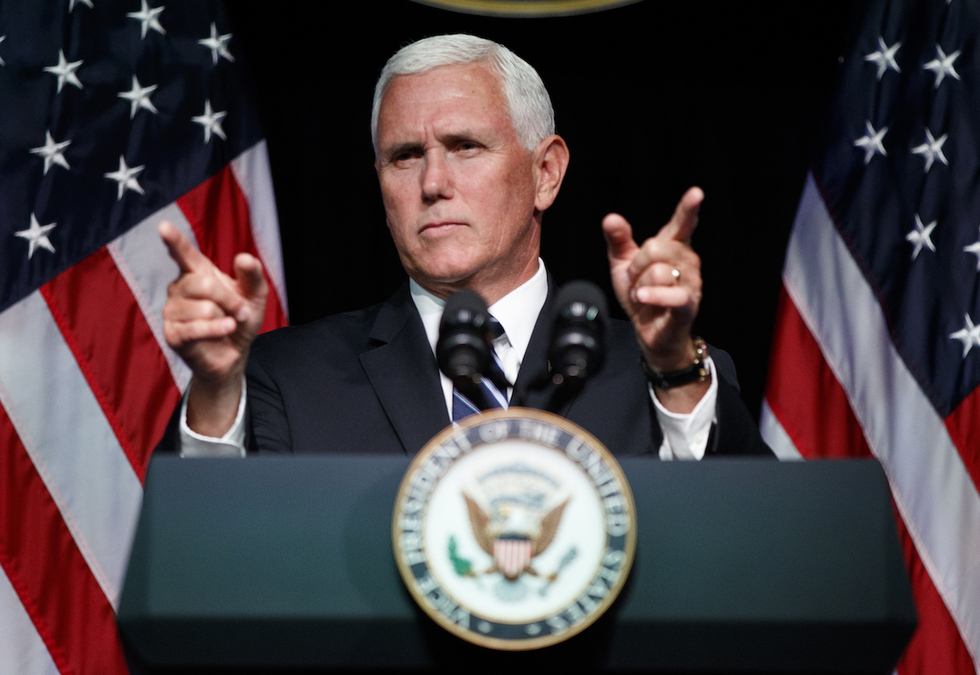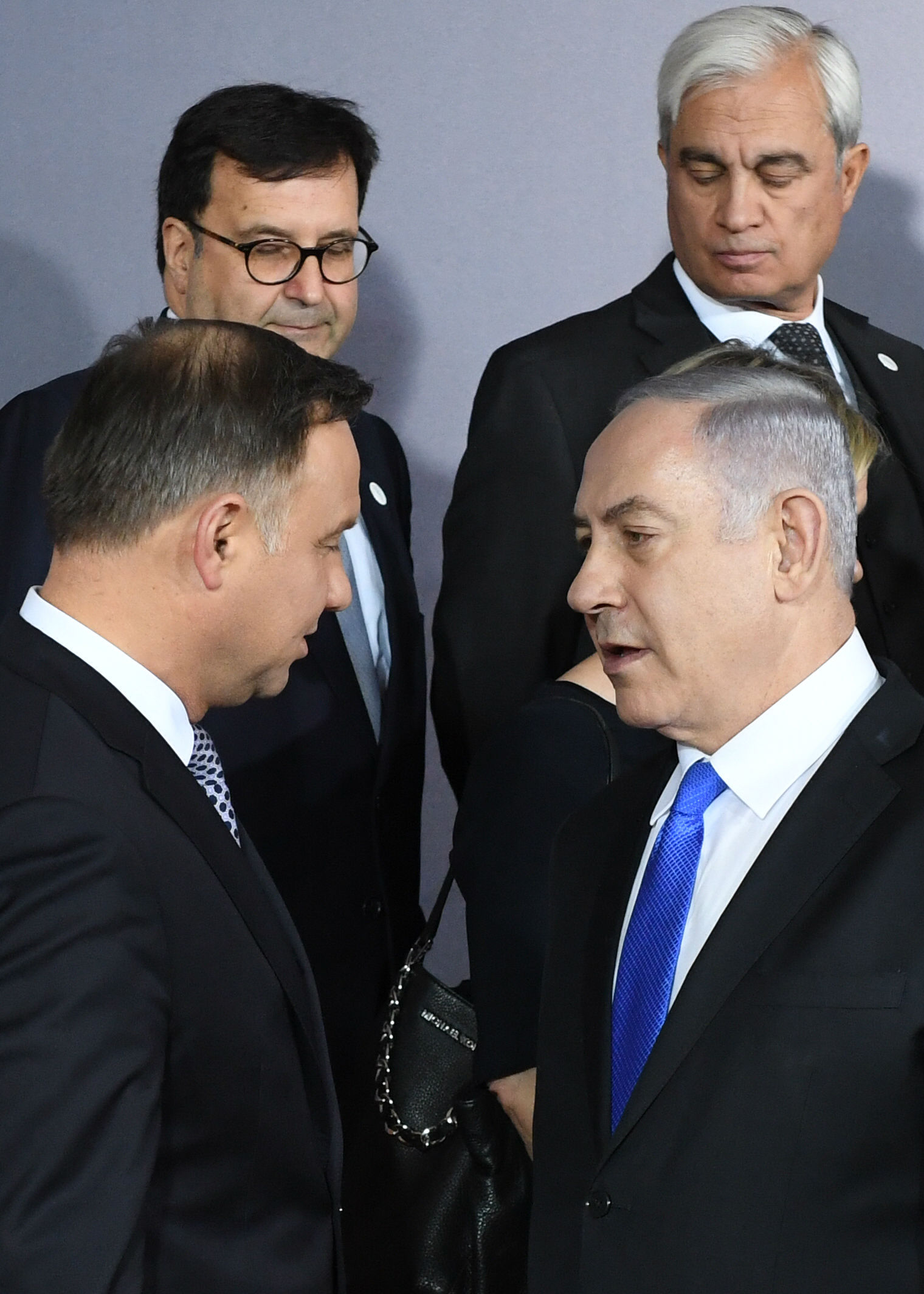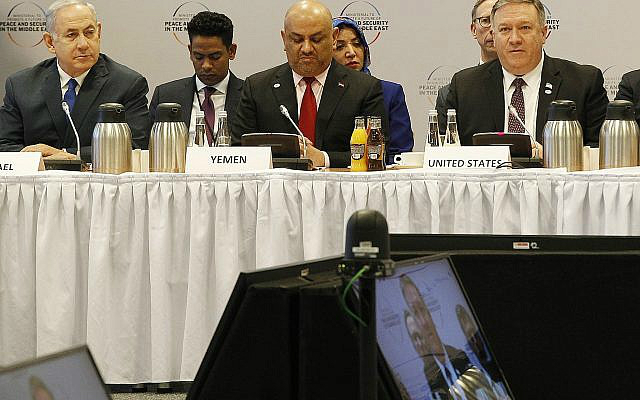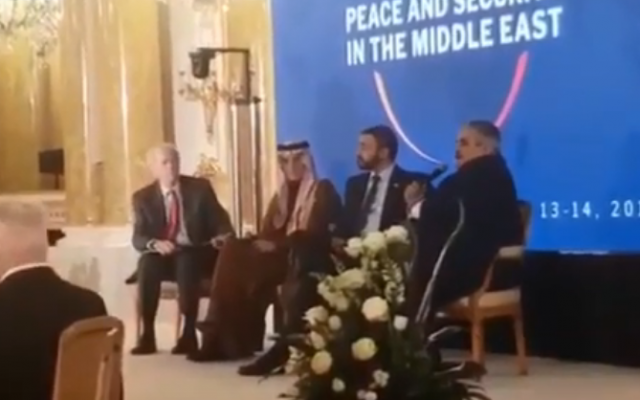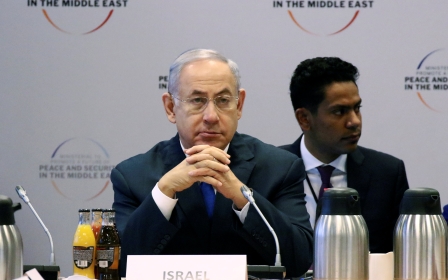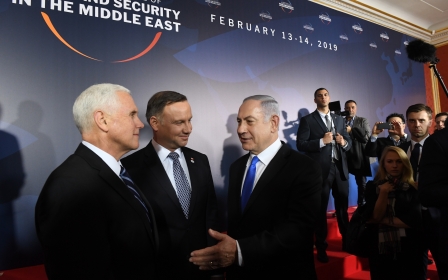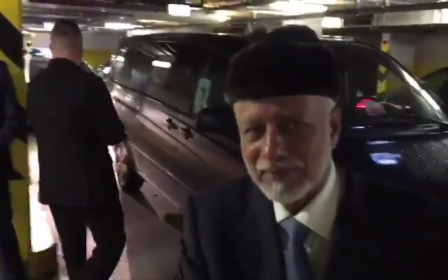Warsaw 'circus' throws up war talk, a Holocaust spat and a seating malfunction
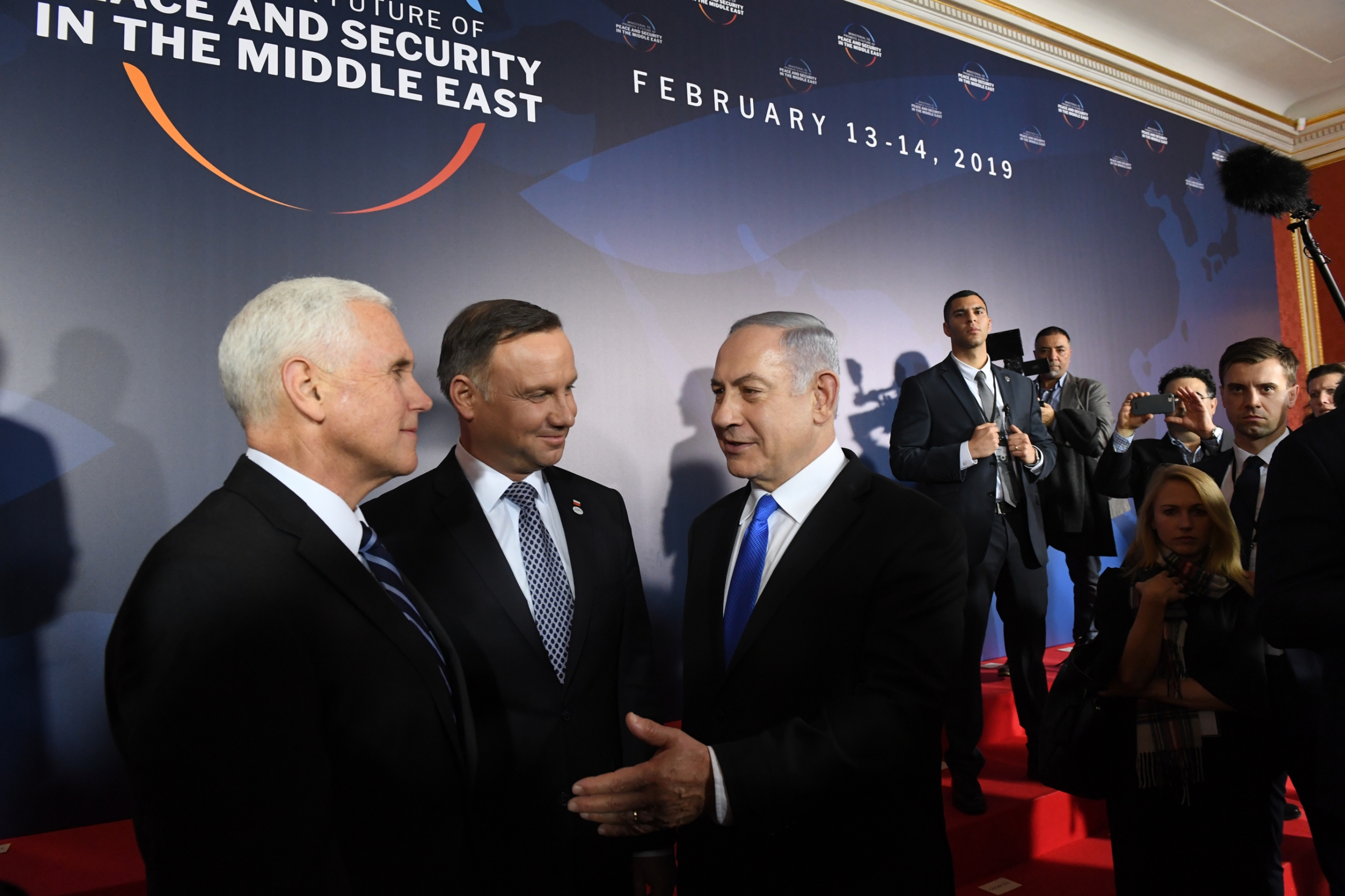
Before the US-backed Warsaw conference on Middle East security began, Iran's foreign minister Mohammad Javad Zarif branded the whole thing a "desperate circus", going on to turn that phrase into a hashtag on Twitter.
It would seem Zarif was right, with the two-day meeting throwing up multiple gaffes and diplomatic faux pas.
Foreign ministers and officials from 60 nations gathered in the Polish capital on Wednesday and Thursday as the US sought to ratchet up pressure against Iran, despite concerns among major European countries over the strategy.
The summit venue in Poland had already been seen as a rebuke to Washington's traditional western European allies, who are at odds with the nationalist government in Warsaw over moves the EU says curb judicial independence and free speech.
The conference was notable because of the presence of Israel alongside several Arab states, including Saudi Arabia, Kuwait, Oman, Qatar, the United Arab Emirates and Bahrain.
But just as notable were the absences, not only of Iran itself, but of the Palestinians, who refused to attend over what they regard as US bias against them under President Donald Trump.
They have been boycotting the administration since Trump reversed decades of US policy in 2017 to recognise Jerusalem as the capital of Israel.
While Israeli Prime Minister Benjamin Netanyahu hailed the conference as an "historical turning point" in confronting Iran, the premier, who faces an election in April, found himself at the centre of many of the diplomatic blunders.
1. Israel and Arab states 'common interest of war with Iran'
Netanyahu has employed harsh rhetoric against Iran for years, but he went a step further on the first day of the summit, saying Israel shared an interest with Arab states in "war" with Iran, using the Hebrew word milhama.
"What is important about this meeting – and this meeting is not in secret, because there are many of those – is that this is an open meeting with representatives of leading Arab countries, that are sitting down together with Israel in order to advance the common interest of war with Iran," he said.
The Israeli prime minister's office walked back his comments about two hours later.
In a re-issued statement to the media, Netanyahu's office said the goal of the meetings in Poland was "to advance the common interest of combatting Iran".
The word "war" was removed from the statement without explanation.
Netanyahu made his comments after a meeting with the Omani minister for foreign affairs, Yusuf bin Alawi, on the sidelines of the conference.
2. Pence lashes out at Europeans over Iran sanctions
US Vice President Mike Pence, often seen as the sober alternative to his boss Trump, lashed out at European powers on the second day of the summit, accusing them of undermining Washington's crackdown on Iran by trying to break US sanctions against Tehran.
"Sadly, some of our leading European partners have not been nearly as cooperative," Pence said. "In fact, they have led the effort to create mechanisms to break up our sanctions."
Last year, Trump pulled the United States out of the 2015 Iran deal, under which Tehran agreed to curbs on its nuclear programme in return for the lifting of sanctions.
Pence called on the Europeans to follow Washington and exit the agreement: "The time has come for our European partners to withdraw from the Iran nuclear deal and join with us."
He said a new European scheme to trade with Iran, known as the Special Purpose Vehicle, was "an effort to break American sanctions against Iran's murderous revolutionary regime".
"It is an ill-advised step that will only strengthen Iran, weaken the EU and create still more distance between Europe and the United States," he said.
European diplomats at the conference rejected Pence's accusations: "We strongly disagree," a diplomat from a major European power told the Reuters news agency.
"We want to push Iran to good results and don’t want to push Iran outside of its nuclear commitment."
3. Netanyahu: The Poles collaborated with the Nazis
On Friday, Anna Azari, Israeli ambassador to Warsaw was summoned to the Polish foreign ministry after Netanyahu said on the second day of the conference that the Poles collaborated with the Nazis during World War II.
"The Poles collaborated with the Nazis and I don't know anyone who was ever sued for such a statement," Netanyahu had said, referring to the controversial Holocaust law that Poland passed in late 2017 and later softened with Israel's blessing, which criminalises anybody accusing the Polish nation of complicity in Nazi crimes.
In response, Polish Prime Minister Mateusz Morawiecki tweeted that in fact his country was a victim of Nazi occupation, while Polish President Andrzej Duda also took to Twitter on Friday, suggesting that Israel should not host the meeting of the Visegrad nations set to be held in Israel next week.
Morawiecki is said to be "seriously considering" cancelling his participation in the meeting.
Duda said he was prepared to make Poland the location of the summit as Israel is no longer a good place for it.
4. Yemen foreign minister caught in seating 'protocol error'
In what he described as a "protocol error", Yemen's foreign minister was forced to address Arab criticism for sitting next to Netanyahu at the opening session of the conference.
Khaled Alyemany was already in his seat when Netanyahu arrived, and as the latter sat down, the two men exchanged a brief smile.
Noting in a tweet that seating had not been up to him, Alyemany said: "The position of Yemen... on the Palestinian issue and its people and leadership is unwavering. Participation in Warsaw was not to discuss Palestine but to rally the international community to confront the Iranian expansionism in Yemen."
Alyemany said "errors pertaining to protocol are the responsibility of the organising parties".
Later, during a part of the session that was closed to the press, Netanyahu prepared to address the delegates but found that his microphone wasn’t functioning properly, according to US peace envoy Jason Greenblatt. Alyemany then let him use his.
Greenblatt joked about the incident on Twitter, calling it a “lighthearted moment” and suggesting it may be the unlikely first step in establishing cooperation between the rival countries, which have never had diplomatic relations.
5. Netanyahu's 'unconscionable' leak of Arab ministers' views
On Thursday, Netanyahu's office leaked a video from the conference in which the foreign ministers of three Arab countries can be seen strongly condemning Iran and defending Israel, and in one case saying that confronting Tehran is more pressing than solving the Israeli-Palestinian conflict.
The 25-minute YouTube clip, which was sent to several Israeli journalists by the prime minister's office, showed part of a panel discussion at the opening gala of the Warsaw conference, which was closed to the media.
Less than half an hour after journalists published the clip, Netanyahu's office removed the video from its YouTube channel.
In it, Sheikh Abdullah bin Zayed al-Nahyan, the foreign minister of the United Arab Emirates, appeared to indicate that Israel was justified in attacking Iranian targets in Syria.
"Every nation has the right to defend itself, when it's challenged by another nation, yes," he replied in response to a question by the panel's moderator, former US Middle East peace negotiator Dennis Ross, about air strikes which Israel says are aimed at preventing Iran from entrenching itself militarily in Syria.
Khalid bin Ahmed al-Khalifa, Bahrain's foreign minister, said that the peace process between Israelis and Palestinians would have been at a much better place if not for Tehran's malign behaviour.
"We grew up talking about the Israel-Palestine issue as the most important issue" that has to be "solved, one way or another," he said.
"But then, at a later stage, we saw a bigger challenge, we saw a more toxic one - in fact the more toxic one in our history - that came from the Islamic Republic.
"There were many other ways of solving it, and had we stayed on the same path, and if it wasn't for the... guns and foot soldiers of the Islamic Republic, I think we would have been much closer today in solving this issue with Israel.
"But this is a serious challenge that is preventing us now from moving forward anywhere, be it Syria, be it Yemen, be it Iraq, be it anywhere."
The third contributor, Saudi Minister of State for Foreign Affairs Adel al-Jubeir, who served as the country's foreign minister until December, also argued that Iran’s "evil behaviour" destabilised the region, making Israeli-Palestinian peace impossible to achieve.
Hatnua party leader Tzipi Livni, a former Israeli foreign minister, criticised the prime minister's leaking of the clip, saying Netanyahu was endangering relations with Arab states for political purposes.
“Relations between nations are based, among other things, on trust between leaders. The filming and leaking by [Netanyahu] of statements made in a closed room, for internal election politics, is unconscionable.
"For years I have had quiet contact with Arab leaders with whom we do not share diplomatic relations, and I never publicised anything from those meetings."
Livni called for "external diplomacy, not internal politics".
Middle East Eye propose une couverture et une analyse indépendantes et incomparables du Moyen-Orient, de l’Afrique du Nord et d’autres régions du monde. Pour en savoir plus sur la reprise de ce contenu et les frais qui s’appliquent, veuillez remplir ce formulaire [en anglais]. Pour en savoir plus sur MEE, cliquez ici [en anglais].


